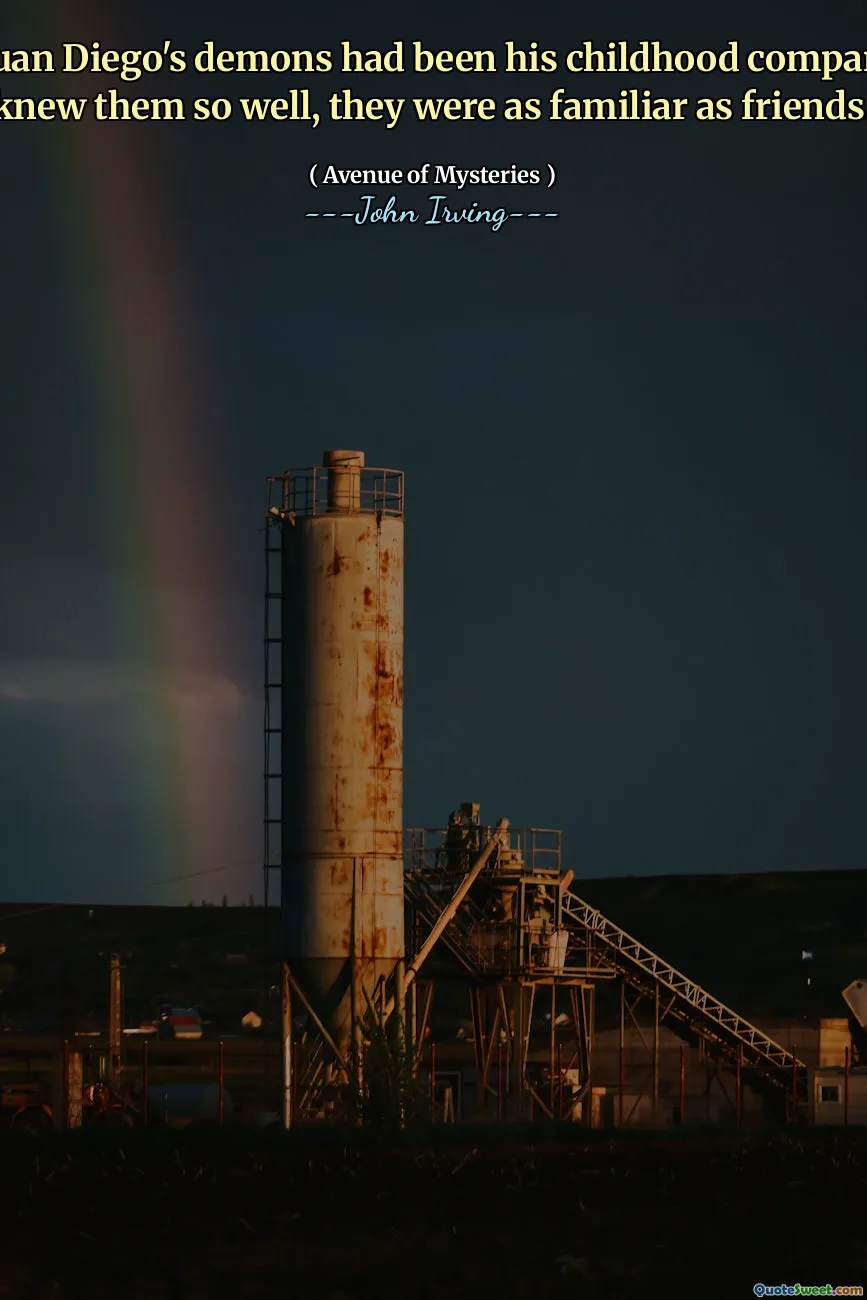
Many of Juan Diego's demons had been his childhood companions - he knew them so well, they were as familiar as friends.
The quote poignantly captures the complex relationship between our past pains and our identity. It suggests that the inner struggles and fears we carry from childhood can become deeply ingrained, almost like old friends whom we recognize and understand intimately. This familiarity indicates not just acceptance but a lingering intimacy—those demons are part of the fabric of who Juan Diego is, shaping his perceptions, choices, and emotional responses. Such a reflection is common in stories exploring the lasting impact of early life experiences, where unresolved conflicts leave echoes that follow one into adulthood. In the context of Irving's narrative in '( Avenue of Mysteries )', this idea might speak to the universality of confronting one’s inner demons—those childhood scars that, although painful, become part of the individual's story. It raises questions about reconciliation and whether such demons can ever truly be banished or merely integrated into our sense of self. Recognizing them as friends underscores the paradox of human resilience: even the most tormenting memories or traits can be part of a person’s identity, contributing to their depth and complexity. It also implies a certain empathy for ourselves and others, understanding that these internal struggles are not superficial but core to our existence. Ultimately, it points to the profound psychology of dealing with our shadows—acceptance, understanding, and perhaps forgiveness—are steps toward peace.





